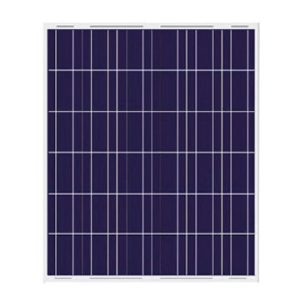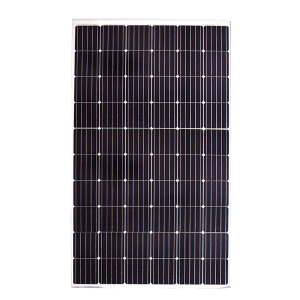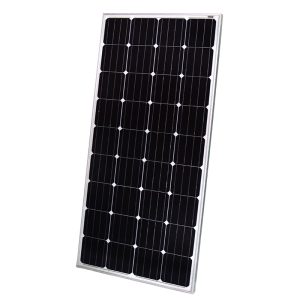Discover the Cost of 1 kW Rooftop Solar Power: Latest 2021 Trends and Insights
In recent years, the adoption of rooftop solar power systems has gained significant momentum as homeowners seek to reduce their carbon footprint and take advantage of the long-term cost savings associated with renewable energy. One of the most common questions that arise when considering a solar installation is the cost of a 1 kW rooftop solar power system. In this comprehensive article, we’ll explore the latest trends, factors influencing the cost, and provide insights to help you make an informed decision.
Understanding the Cost Components
Installing a 1 kW rooftop solar power system involves several cost components, each playing a crucial role in determining the overall investment. Let’s break down these components:
Solar Panels
The solar panels are the heart of any rooftop solar system, and their cost can vary significantly based on factors such as panel efficiency, brand, and technology (monocrystalline vs. polycrystalline). High-efficiency panels tend to be more expensive but can generate more power per square foot, potentially reducing the overall system size and installation costs. On average, the cost of solar panels for a 1 kW system can range from $3,000 to $5,000, depending on the specific models and quality.
solar-panels/ – Explore our wide range of high-quality solar panels suitable for residential and commercial installations.
Inverters
Inverters are responsible for converting the direct current (DC) electricity generated by the solar panels into alternating current (AC) that can be used in your home or fed back into the grid. There are several types of inverters, including string inverters, microinverters, and power optimizers, each with its own advantages and costs. For a 1 kW system, the inverter cost can range from $500 to $1,500, depending on the type and brand.
solar-panel-systems/ – Check out our complete solar panel system solutions, including inverters and mounting hardware.
Labor and Installation
The labor and installation costs can vary significantly based on factors such as the complexity of the installation, the roof type, and the location. These costs typically include site preparation, electrical work, mounting hardware, and permitting fees. On average, labor and installation costs for a 1 kW rooftop solar system can range from $1,500 to $3,000.
Permitting and Interconnection Fees
Before installing a rooftop solar system, you may need to obtain various permits and approvals from your local authorities. Additionally, there may be fees associated with interconnecting your system to the utility grid. These fees can vary widely depending on your location and can range from $100 to $1,000 or more.
Factors Influencing the Cost
While the cost components provide a general overview, several factors can significantly impact the overall cost of a 1 kW rooftop solar installation:
Location and Local Incentives
The cost of a 1 kW rooftop solar system can vary significantly based on your location. Factors such as labor costs, permitting fees, and local incentives or rebates can impact the overall price. Some states and municipalities offer tax credits, net metering programs, or renewable energy incentives that can help offset the upfront costs.
System Size and Panel Efficiency
While this article focuses on the cost of a 1 kW system, it’s important to note that the overall system size and panel efficiency can affect the cost per watt. Larger systems often benefit from economies of scale, resulting in a lower cost per watt. Similarly, higher-efficiency panels can reduce the overall system size and installation costs, although they may have a higher upfront cost.
foldable-solar-panels/ – Explore our range of foldable and portable solar panels for off-grid or mobile applications.
220w-mono-solar-module/ – Check out our high-efficiency 220W monocrystalline solar modules for residential and commercial installations.
Roof Type and Orientation
The type of roof you have and its orientation can impact the installation complexity and costs. Steep or complex roofs may require additional labor and specialized equipment, increasing the overall cost. Additionally, the roof orientation and potential shading can affect the system’s performance and may necessitate additional components or adjustments.
Additional Equipment and Customizations
Depending on your specific needs and preferences, you may require additional equipment or customizations that can increase the overall cost. Examples include energy storage solutions (batteries), monitoring systems, ground-mounted installations, or aesthetic enhancements (e.g., integrated solar roof tiles).
Estimating the Cost in Your Area
To get a more accurate estimate of the cost of a 1 kW rooftop solar system in your area, you can use online calculators and estimation tools provided by reputable solar companies or organizations. These tools typically take into account factors such as your location, roof type, system size, and local incentives to provide a more personalized cost estimate.
Here are some approximate cost ranges for different regions in the United States:
- Northeast: $8,000 – $12,000
- Midwest: $7,000 – $10,000
- Southwest: $6,000 – $9,000
- West Coast: $8,000 – $12,000
These ranges are based on factors such as labor costs, permitting fees, and local incentives. It’s important to note that these are rough estimates, and your actual costs may vary depending on your specific circumstances.
epoxy-small-solar-panel/ – Explore our range of small and compact solar panels, perfect for powering electronics and small devices.
solar-water-heating-systems/ – Check out our solar water heating systems for residential and commercial applications.
Long-Term Savings and Return on Investment (ROI)
While the upfront cost of a 1 kW rooftop solar system may seem significant, it’s important to consider the long-term savings and potential return on investment (ROI).
Calculating Energy Bill Savings
One of the primary benefits of installing a rooftop solar system is the potential to reduce or eliminate your monthly electricity bills. To calculate your potential savings, you’ll need to consider factors such as your current electricity rates, the system’s expected energy production, and any net metering or feed-in tariff programs offered by your utility.
Payback Period and Lifetime Savings
The payback period is the amount of time it takes for the energy savings to offset the initial cost of the solar system. This period can vary based on factors such as system cost, energy production, and electricity rates. Once the system has paid for itself, you can continue to enjoy free electricity and lifetime savings for the remaining lifespan of the system, which is typically 25-30 years.
Impact of Incentives and Rebates
Many states and municipalities offer incentives and rebates to encourage the adoption of solar energy. These incentives can significantly reduce the upfront cost of a 1 kW rooftop solar system and shorten the payback period. Examples of incentives include tax credits, renewable energy certificates (RECs), and performance-based incentives (PBIs).
1w-5v-epoxy-mini-solar-cell/ – Check out our compact and efficient mini solar cells for powering small electronics and devices.
sun-power-50w-ollin-solar-panel/ – Explore our high-quality 50W solar panels from SunPower, a leading manufacturer in the industry.
Case Studies: Real-World Examples
To better understand the real-world costs and experiences associated with installing a 1 kW rooftop solar system, let’s explore a few case studies:
Case Study 1: Residential Installation in California
- System Size: 1.2 kW
- Panel Type: Monocrystalline, 320W panels
- Inverter: String inverter
- Total Cost: $8,500 (after federal tax credit)
- Estimated Annual Savings: $1,200
- Payback Period: 7 years
- Homeowner Experience: The homeowner faced some challenges with permitting and interconnection due to local regulations but was overall satisfied with the installation process and the system’s performance. They appreciated the long-term savings and the ability to reduce their carbon footprint.
Case Study 2: Residential Installation in New York
- System Size: 1 kW
- Panel Type: Polycrystalline, 250W panels
- Inverter: Microinverters
- Total Cost: $10,000 (after state and federal incentives)
- Estimated Annual Savings: $900
- Payback Period: 11 years
- Homeowner Experience: The homeowner had a relatively smooth installation process and was pleased with the system’s performance. They noted that the microinverters provided better energy production in partially shaded areas of their roof.
These case studies illustrate the potential costs, savings, and experiences associated with installing a 1 kW rooftop solar system in different regions. It’s important to note that individual results may vary based on specific circumstances and local conditions.
framed-200w-18v-poly-solar-panel/ – Check out our framed 200W polycrystalline solar panels, ideal for residential and commercial installations.
170w180w190w200w-mono-solar-panel/ – Explore our range of high-efficiency monocrystalline solar panels, available in various wattages to suit your needs.
Emerging Technologies and Their Impact
The solar industry is constantly evolving, with new technologies and innovations emerging that can impact the cost and performance of rooftop solar systems. Here are some emerging technologies that may influence the cost of a 1 kW rooftop solar installation:
Higher-Efficiency Solar Panels
Manufacturers are continuously developing solar panels with higher efficiency ratings, allowing them to generate more electricity per square foot. While these panels may have a higher upfront cost, they can potentially reduce the overall system size and installation costs, making them a cost-effective option in the long run.
Microinverters and Power Optimizers
Traditional string inverters can be less efficient in scenarios where there is partial shading or module mismatch. Microinverters and power optimizers are designed to optimize the performance of each individual solar panel, potentially increasing energy production and reducing overall system costs.
Energy Storage Solutions
The integration of energy storage solutions, such as batteries, can further enhance the value and cost-effectiveness of a rooftop solar system. By storing excess energy generated during the day, homeowners can use this stored energy during peak demand periods or during power outages, potentially reducing their reliance on the grid and associated costs.
As these emerging technologies continue to evolve and become more widely adopted, they may impact the overall cost and return on investment (ROI) of a 1 kW rooftop solar system. It’s important to stay informed about the latest developments and consider their potential benefits when evaluating the cost and feasibility of a solar installation.
folding-poly-portable-solar-panel/ – Check out our range of foldable and portable polycrystalline solar panels, perfect for camping, RVs, and off-grid applications.
In conclusion, the cost of a 1 kW rooftop solar power system can vary significantly based on various factors, including location, system components, roof type, and local incentives. While the upfront investment may seem substantial, the long-term savings and environmental benefits make rooftop solar an attractive option for many homeowners. By carefully evaluating your specific needs, researching reputable solar providers, and taking advantage of available incentives, you can make an informed decision and potentially reap the rewards of clean, renewable energy for years to come.



